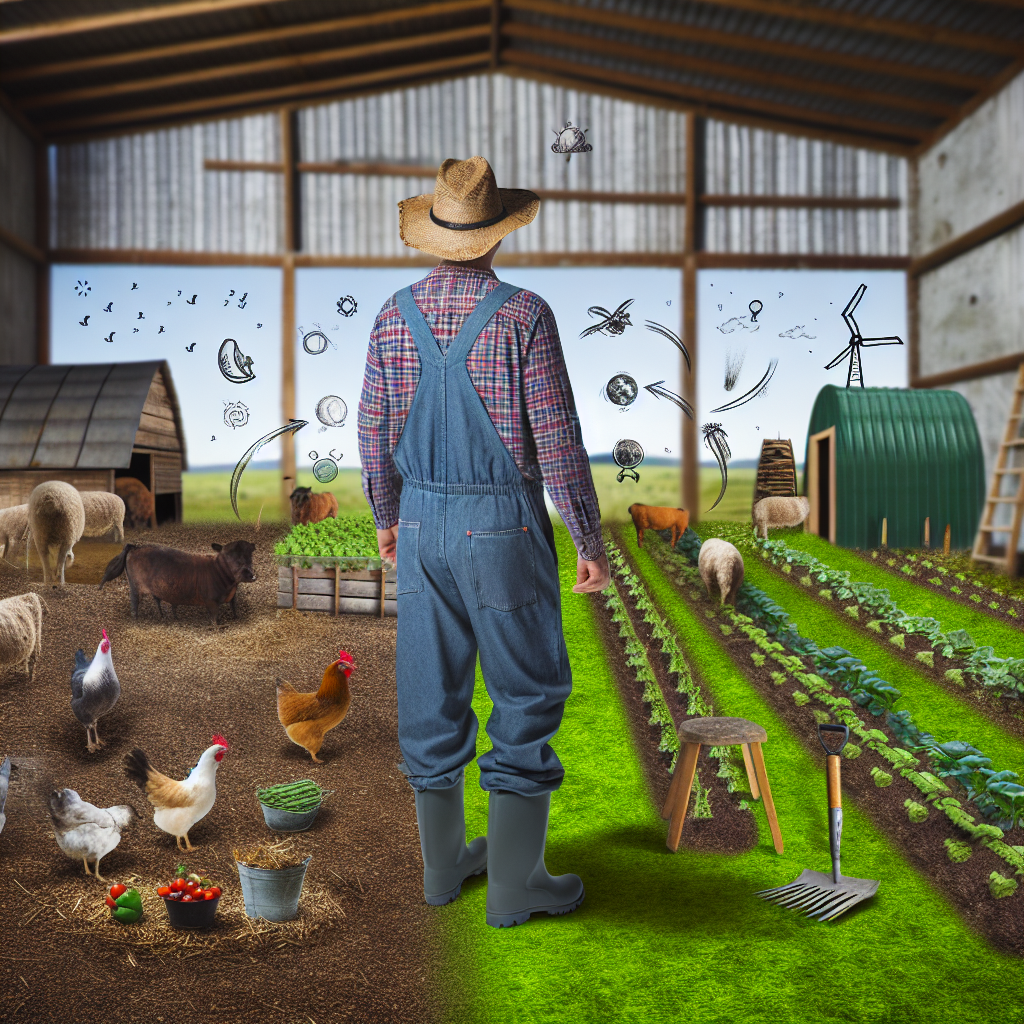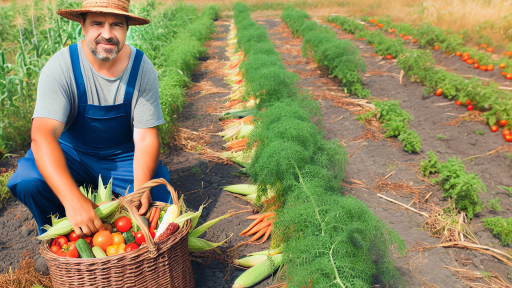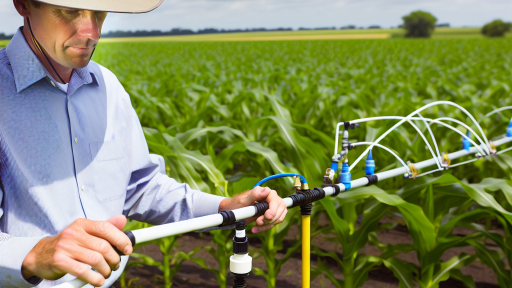Definition of Ethical Farming and Its Principles
Understanding Ethical Farming
Ethical farming prioritizes humane treatment of animals and sustainable practices.
This approach fosters a positive relationship between farmers and the environment.
Moreover, it emphasizes the well-being of workers involved in agricultural processes.
Ethical farming seeks to create a system that supports both people and the planet.
Core Principles of Ethical Farming
One fundamental principle is respect for animal welfare.
Farmers provide animals with adequate living conditions that promote health and happiness.
Additionally, they avoid practices that cause unnecessary suffering.
Another principle focuses on sustainable land management.
This involves using crop rotation and organic fertilizers to maintain soil health.
Furthermore, ethical farming practices encourage biodiversity within farming systems.
Community support is also essential in ethical farming.
Farmers engage local communities through fair trade practices.
This ensures that the benefits of farming reach all stakeholders involved.
Environmental Stewardship
Ethical farming practices aim to reduce environmental impact.
This encompasses minimizing chemical use and conserving water resources.
Transform Your Agribusiness
Unlock your farm's potential with expert advice tailored to your needs. Get actionable steps that drive real results.
Get StartedBy prioritizing ecosystems, farmers contribute to climate change mitigation.
Ultimately, ethical farming represents a holistic approach to agriculture.
It connects food production with ethical responsibility towards society and nature.
Historical Context of Farming Practices and Environmental Awareness
Evolution of Farming Techniques
Farming has evolved significantly over millennia.
Early agricultural practices relied heavily on rudimentary tools.
As societies advanced, so did their farming methods.
Mechanization in the 19th century transformed agriculture completely.
Farmers adopted new technologies for increased productivity.
Subsequent innovations included the use of synthetic fertilizers.
These changes greatly influenced crop yields globally.
Impact of Industrialization on Farming
Industrialization introduced a new paradigm in agriculture.
It emphasized mass production and efficiency at any cost.
This shift led to monoculture practices dominating farmlands.
Consequently, biodiversity suffered dramatically during this era.
Soil depletion and chemical runoff became prevalent issues.
Farmers faced growing environmental concerns as a result.
Emergence of Environmental Awareness
The environmental movement gained traction in the mid-20th century.
Public awareness of pollution and climate change intensified.
Books like Rachel Carson’s ‘Silent Spring’ inspired many.
The impact of traditional farming practices became clear.
Consequently, calls for sustainable and ethical farming practices grew.
Legislation aimed at protecting the environment started to emerge.
Modern Ethical Farming Practices
Today, many farmers prioritize sustainable methods.
Organic farming has become increasingly popular among consumers.
Showcase Your Farming Business
Publish your professional farming services profile on our blog for a one-time fee of $200 and reach a dedicated audience of farmers and agribusiness owners.
Publish Your ProfileAdditionally, agroecology emphasizes ecological balance.
Farmers utilize crop rotation and cover cropping techniques.
This approach enhances soil health and biodiversity.
Community-supported agriculture fosters local food systems.
Such strategies address environmental impacts more effectively.
The Role of Sustainable Agriculture in Minimizing Environmental Impact
Promoting Biodiversity
Sustainable agriculture actively promotes biodiversity in farming systems.
By diversifying crops, farmers encourage a range of species in the ecosystem.
This practice boosts resilience against pests and diseases.
Additionally, healthy ecosystems support pollinators, which are vital for food production.
Soil Health Management
Maintaining soil health is crucial for sustainable farming practices.
Farmers utilize organic methods to enhance soil fertility.
Cover crops and crop rotation improve soil structure and nutrient content.
Healthy soil also reduces erosion and increases water retention.
Water Conservation Techniques
Efficient water use is a cornerstone of sustainable agriculture.
Irrigation management techniques minimize water wastage.
Methods like drip irrigation provide targeted hydration to crops.
Moreover, rainwater harvesting captures natural precipitation for future use.
Reduction of Chemical Use
Reducing chemical inputs minimizes environmental pollution.
Farmers adopt integrated pest management to control pests naturally.
This approach limits the reliance on synthetic herbicides and pesticides.
Consequently, it protects local waterways from chemical runoff.
Carbon Sequestration Practices
Sustainable farming practices contribute to carbon sequestration.
Techniques such as agroforestry introduce trees into farming systems.
These trees absorb carbon dioxide from the atmosphere.
Additionally, maintaining grasslands can further capture carbon in the soil.
Community and Local Economy Support
Sustainable agriculture fosters strong local economies.
By sourcing food locally, communities reduce transportation emissions.
Local farming encourages consumers to connect with their food sources.
This relationship strengthens community ties and supports farmers.
Explore Further: Engaging the Community in Community Supported Agriculture
Comparison of Conventional vs. Ethical Farming Practices
Defining Conventional Farming
Conventional farming often relies on synthetic chemicals for pest control.
This method favors monocultures over diverse cropping systems.
Farmers frequently use genetically modified organisms to boost yields.
Additionally, they may prioritize immediate profits over long-term sustainability.
Understanding Ethical Farming
Ethical farming emphasizes sustainability and environmental stewardship.
This practice prioritizes soil health and biodiversity in agricultural systems.
Farmers utilize organic methods to control pests, avoiding harmful chemicals.
Moreover, they invest in community welfare and fair labor practices.
Environmental Impact Comparison
Conventional farming practices significantly contribute to soil degradation.
In contrast, ethical farming aims to improve soil fertility over time.
Showcase Your Farming Business
Publish your professional farming services profile on our blog for a one-time fee of $200 and reach a dedicated audience of farmers and agribusiness owners.
Publish Your ProfileConventional methods often lead to water pollution from runoff.
On the other hand, ethical farming techniques enhance water conservation.
Animal Welfare Considerations
In conventional systems, animals often face restrictive living conditions.
Many ethical farms, however, ensure humane treatment of livestock.
This humane treatment includes providing adequate space and nutrition.
Furthermore, ethical practices often involve reduced antibiotic use.
Long-term Viability
Conventional farming can harm ecosystems, making it less sustainable.
Ethical farming promotes resilience in agricultural practices.
This sustainability supports future food security for growing populations.
Ultimately, ethical practices align agricultural productivity with environmental health.
Uncover the Details: Agri-Tourism Permits and Regulations for Farmers
Benefits of Ethical Farming for Biodiversity and Soil Health
Enhancing Biodiversity
Ethical farming significantly boosts biodiversity on agricultural lands.
It promotes diverse plant species that support various wildlife.
Moreover, it encourages beneficial insects, such as pollinators.
By maintaining natural habitats, farmers can help restore ecosystems.
This practice prevents soil degradation and protects native flora.
Soil Health Improvement
Healthy soil is crucial for sustainable agriculture.
Ethical farming improves soil structure and fertility.
Farmers enrich the soil with natural compost and organic matter.
Reduced chemical inputs foster a stronger soil ecosystem.
Additionally, cover crops prevent erosion and enhance soil health.
Carbon Sequestration
Ethical farming practices capture carbon in the soil.
Carbon sequestration mitigates climate change effects.
Farmers who use crop rotation boost soil carbon storage.
This practice improves overall crop resilience against climate variations.
Water Conservation
Ethical farming optimizes water use in agriculture.
Techniques like drip irrigation minimize water waste.
Implementing rainwater harvesting enhances water availability.
Furthermore, healthy soil retains more moisture for crops.
Supporting Local Ecosystems
By emphasizing native species, ethical farming supports local ecosystems.
This approach fosters a healthier habitat for wildlife.
Farmers contribute to sustainability by adopting wildlife-friendly practices.
Such measures create a balance within the agricultural environment.
Explore Further: Natural Pest Control Solutions for Small Farms

Case Studies of Successful Ethical Farming Initiatives Globally
Agroecological Practices in Brazil
In Brazil, agroecological practices empower local farmers.
This approach emphasizes organic farming methods.
Farmers use crop rotation to improve soil fertility.
Additionally, they integrate livestock with crop production.
This method enhances biodiversity and reduces chemical dependence.
Community Supported Agriculture in the United States
Community Supported Agriculture (CSA) connects consumers with local farms.
Showcase Your Farming Business
Publish your professional farming services profile on our blog for a one-time fee of $200 and reach a dedicated audience of farmers and agribusiness owners.
Publish Your ProfileMembers purchase shares of farm produce in advance.
This model provides farmers with reliable income streams.
Moreover, it promotes seasonal eating within the community.
Transparency fosters trust between farmers and consumers.
Regenerative Agriculture in Australia
Australia showcases regenerative agriculture as a viable solution.
This practice restores degraded landscapes through holistic management.
Farmers implement practices like no-till farming and cover cropping.
These strategies enhance soil health and capture carbon dioxide.
Consequently, they combat climate change effectively.
Organic Coffee Production in Ethiopia
In Ethiopia, organic coffee production supports local economies.
Farmers cultivate coffee without synthetic fertilizers or pesticides.
This preserves traditional farming methods and biodiversity.
Additionally, it attracts premium prices in international markets.
As a result, farmers can invest in community development.
Vertical Farming Initiatives in Singapore
Singapore employs vertical farming to optimize limited space.
This innovative approach maximizes urban agricultural output.
Farmers employ hydroponic and aeroponic systems in skyscrapers.
Consequently, they reduce transportation emissions significantly.
Furthermore, this method ensures fresh produce availability year-round.
See Related Content: Ethical Animal Farming Practices
Challenges and Barriers to Implementing Ethical Farming Practices
Financial Constraints
Farmers often face financial barriers to adopting ethical practices.
Initial investments in sustainable equipment can be high.
Additionally, transitioning to organic methods often requires funding.
Limited access to loans can further hinder farmers’ abilities.
Consequently, many choose conventional methods due to financial pressures.
Knowledge Gap
A significant barrier is the lack of knowledge about ethical farming.
Many farmers are not informed about sustainable techniques.
This knowledge gap can lead to resistance against adopting new practices.
Education and training programs are crucial to overcoming this issue.
Furthermore, farmers need access to resources that explain best practices.
Market Demand and Consumer Awareness
Market demand influences farmers’ decisions profoundly.
Consumers must recognize the value of ethically produced goods.
Low consumer awareness can lead to insufficient demand for ethical products.
Farmers may hesitate to invest in ethical practices without strong market support.
Thus, increasing consumer education is essential to promote ethical farming.
Policy and Regulatory Challenges
Government policies can either support or hinder ethical farming.
Strict regulations may impose burdens on farmers pursuing sustainable methods.
Additionally, inconsistent policies create uncertainty for farmers.
Advocacy for better policy frameworks is vital for progress.
Increased support from government entities can facilitate change.
Showcase Your Farming Business
Publish your professional farming services profile on our blog for a one-time fee of $200 and reach a dedicated audience of farmers and agribusiness owners.
Publish Your ProfileAccess to Resources and Support
Access to sustainable seeds and organic fertilizers can be limited.
Many farmers struggle to find reliable suppliers for these resources.
Inadequate support services for farmers transitioning to ethical practices exist.
Network building within the agricultural community is essential.
Farmers need support from local organizations and cooperatives.
Future Trends in Ethical Farming and Environmental Conservation
Integration of Technology
Technology will transform ethical farming practices in the coming years.
Farmers will increasingly utilize precision agriculture techniques.
These techniques help in reducing waste and maximizing efficiency.
For instance, drones will monitor crop health with precision.
Moreover, sensors will optimize water usage in real-time.
Increased Focus on Soil Health
Soil health will gain more attention in sustainable agriculture.
Farmers will adopt regenerative practices to enhance soil fertility.
This approach will increase carbon sequestration capabilities.
Consequently, healthy soil will support more productive farming.
Consumer Demand for Transparency
Consumers are increasingly demanding transparency in food production.
Producers will need to provide clear information about farming practices.
Traceability systems will ensure food safety and ethical sourcing.
Consequently, brands will prioritize building trust with customers.
Collaborative Farming Models
Collaboration among farmers will become more prevalent.
Community-supported agriculture will engage consumers more deeply.
Farmers will share resources and knowledge for collective benefits.
This approach will lead to more resilient farming systems.
Policy Shifts and Support
Governments are likely to introduce more supportive policies for sustainable farms.
Financial incentives will encourage practices that benefit the environment.
Such policies will support small-scale, local farming initiatives as well.
These changes will ultimately promote biodiversity and conservation efforts.




